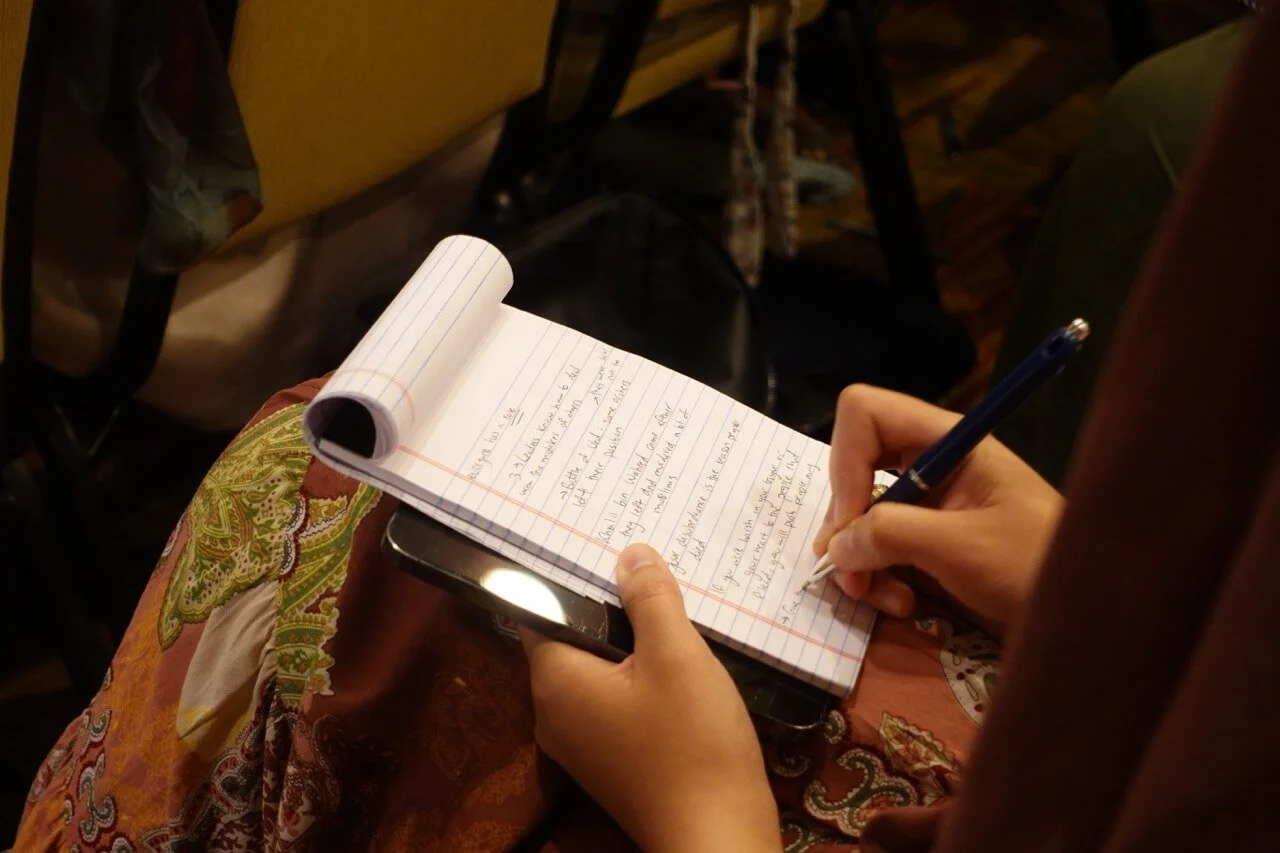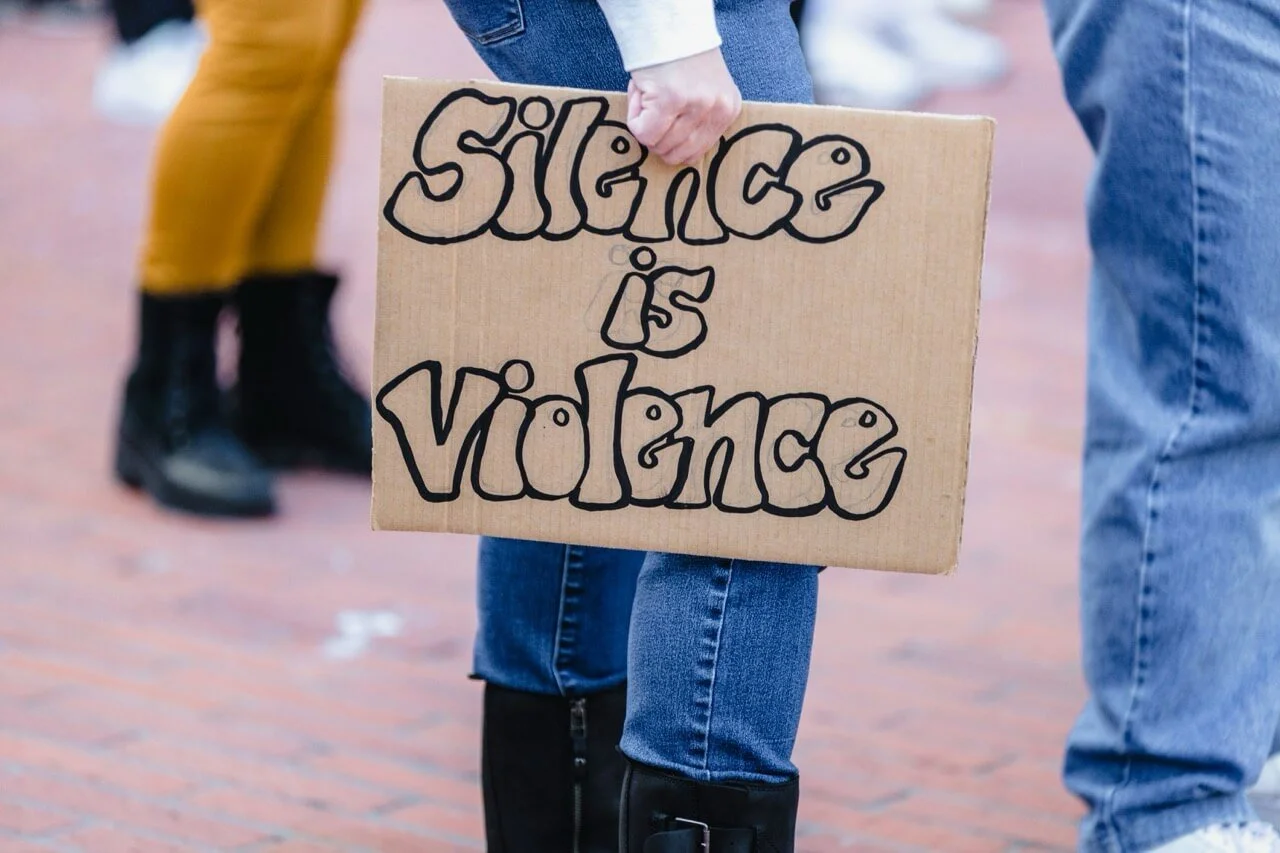
Our Blog
The Basics of Supporting a Domestic Violence Victim
[Domestic violence] starts in the school pickup line, over coffee with a friend, in the quiet worry we feel about a neighbor…Because here’s the hard truth we need to sit with: Domestic violence isn’t about one explosive fight or a "bad day." That's a myth that keeps us silent. It’s a calculated pattern of power and control. It’s a slow, strategic campaign to isolate and dominate a partner. And the weapons in this campaign aren’t always fists.
Team Spotlight: Safra Khan, Director of Operations
One thing that makes us unique is that we are driven by faith. A lot of what we do and most of our staff and team members at An-Nisa—are volunteers. And I believe to do this kind of work, you have to be working for a bigger purpose. And I think everybody in An-Nisa is working because they know there is a bigger purpose in life. There’s a greater meaning behind what we do, and that’s truly what makes us, and our staff, so unique.
To keep our spirits up, we spend a lot of time together. It goes beyond the usual team-building—it’s deeper than that. We form real connections, and we do our best to uphold and nurture those relationships. It’s the kind of environment where, if you’re only feeling 50%, someone else will say, ‘It’s okay—I’ll carry the other 50%’, and together we’ll be 100%.’ I think that kind of support is what really keeps our spirits up.
Team Spotlight: Raazia Nathani, Director of Advocacy and Outreach
We ensure our initiatives and projects support the organization's overall goal of advocating for those in crisis and assisting them in regaining self-sufficiency. Regular communication among leadership and with other departments is vital in setting and aligning the Advocacy team's goals to ensure that we are supporting the organization's mission. An-Nisa is truly a team and everyone's efforts support the big picture. Advocacy is honored to be a part of the team to create awareness and promote change, furthering the organization's overall cause.
Team Spotlight: Zainab Choudhary, Donor Relations and Community Fulfillment Admin
One moment that really showed me the impact of our outreach was after I completed my training and began visiting families through An-Nisa. During our visits, we assess families' living conditions to better understand their needs. Because of our assessment, we were able to provide them with grocery gift cards, clothing from our drive, and toys for the children. Seeing their reactions, especially the kids' joy made it clear that our efforts were making a real difference.
Team Spotlight: Angela Montenegro, Housing Case Manager
Seeing my clients happy. It reminds me that even small steps forward can lead to big transformations. Watching someone regain their confidence, feel heard, or smile after a long struggle gives me the motivation to keep going, even on the hardest days.
Team Spotlight: Ahnaf Sharar, Counselor
My primary objective is to address the cultural stigma associated with seeking professional help and promote self-empowerment. I ensure that my clients gain a comprehensive understanding of both their intrinsic and extrinsic stigma, emphasizing the significance of mental health awareness in their journey towards self-improvement.
Team Spotlight: Erum Kamran, Financial and Operations Coordinator
The way we know that our programs are making an impact is by staying connected to our clients and the people of our communities we serve. Reviewing programs reports, feedback, and success stories from our clients is how we see our work and every single dollar is making a difference.
Team Spotlight: Saira Waheed, Case Manager
The beauty of working [at An-Nisa] is that every achievement—no matter how small—is valued and celebrated, because nothing is too small of an achievement to matter. Each small success builds toward something greater, and that’s what drives me. I love looking ahead and continuously moving forward.
Team Spotlight: Dr. Ketam Hamdan, Director of Mental Health
A game-changing initiative my team at An-Nisa launched is Wellbeing Advising, a breakthrough model for individuals who may not feel ready for therapy but still deserve support. It blends spiritual care, emotional guidance, nervous system education, and real-world problem-solving. This year, we also invested in a more advanced brain scan machine that delivers deeper, more informative reports, enhancing the precision of our care. And we began learning photobiomodulation, an emerging light-based treatment that complements our neuro-based healing approach. These innovations are expanding how we serve our community, meeting people where they are and offering tools that truly transform lives.
Team Spotlight: Sadaf Patel, Director of Education and Prevention
Through our work in schools, masjids, and community spaces, we’ve created safe environments for critical conversations that often don’t happen anywhere else…The impact has been powerful: students are opening up more, school staff are requesting repeat sessions, and families are reaching out for deeper support. Most importantly, we’re seeing young people make healthier choices and adults becoming stronger advocates for their children’s safety and emotional well-being.
Where Advocacy Meets Action
In 2025, our advocacy efforts turned powerful moments into lasting change. From championing legislation at the Capitol to fostering unity through community events, we stood up for justice, amplified unheard voices, and strengthened partnerships across Texas.
The Impact of an Empowered Mother—And How to Become One
Empowered moms are more than caregivers—they are leaders, changemakers, and role models. When mothers feel confident, supported, and fulfilled, they raise stronger families, influence communities, and drive social and economic progress. In this blog, discover how empowered motherhood transforms lives and learn practical steps to boost your confidence, set boundaries, embrace self-care, and model resilience. Whether you work, stay at home, or do both—your empowerment is key to a thriving family and a better future.
Child Abuse Prevention
The Prophet ﷺ never struck a child, a woman, or a servant.
Yet in many Muslim homes, abuse hides behind the mask of discipline or cultural norms. Verbal insults, emotional neglect, or even worse—many children suffer in silence.
Child abuse isn’t always visible, but its impact can last a lifetime. As Muslims, we have a sacred duty to protect the amānah (trust) Allah has given us in our children.
This article outlines 5 essential truths every Muslim family must understand to prevent abuse and nurture children with love, safety, and mercy—just as our Prophet ﷺ did.
Valentine's Day: A Heartfelt Call to Address Domestic Violence
Valentine’s Day is not just a celebration of love; it also highlights the urgent need for action against domestic violence. Many individuals experience relationships that lack the safety and security we all deserve. It's crucial that we recognize the challenges faced by those affected and advocate for legislative changes that provide necessary support and protection. Together, let's work towards a society where love is experienced in a safe and nurturing environment for everyone.
From Awareness to Action: Advancing the Fight Against Domestic Violence in 2024
Explore An-Nisa’s 2024 achievements in combating domestic violence, from awareness campaigns to impactful training for law enforcement, judges, and campus faculty. Our 2025 goals include legislation to train cosmetologists to recognize abuse.
Salons as Sanctuaries: Texas Initiative
With over 9,000 domestic violence cases in Texas yearly, salons could become unexpected sanctuaries. Proposed legislation empowers beauty professionals to recognize abuse and connect survivors with life-saving resources.
Benefits of Seeking Mental Health Counseling
Mental health counselors are trained to work with various populations including adults, men, women, elderly, teens, children, and couples. Mental health counselors also specialize in various areas including marriage and family, addiction, multicultural, career, trauma, addiction, and school counseling.
Post-Traumatic Growth (PTG): Be the Best Version of Yourself
Post-traumatic growth is a positive psychological change as a result of adverse experiences or trauma to help you reach a higher level of your competence.
The Reality of Childhood Domestic Violence
Children who grow up in homes with domestic violence are at higher risk of developing mental health problems such as depression, anxiety, and post-traumatic stress disorder. They may also have difficulty with emotional regulation, aggression, and interpersonal relationships.
6 Tips to Enhance Your Relationship with Your Children
Having a strong family relationship is the best protective factor in preventing child abuse. The most important thing is to make our homes safe for our children, so they can flourish and have the strength to deal with all the outside pressures of the world.




















